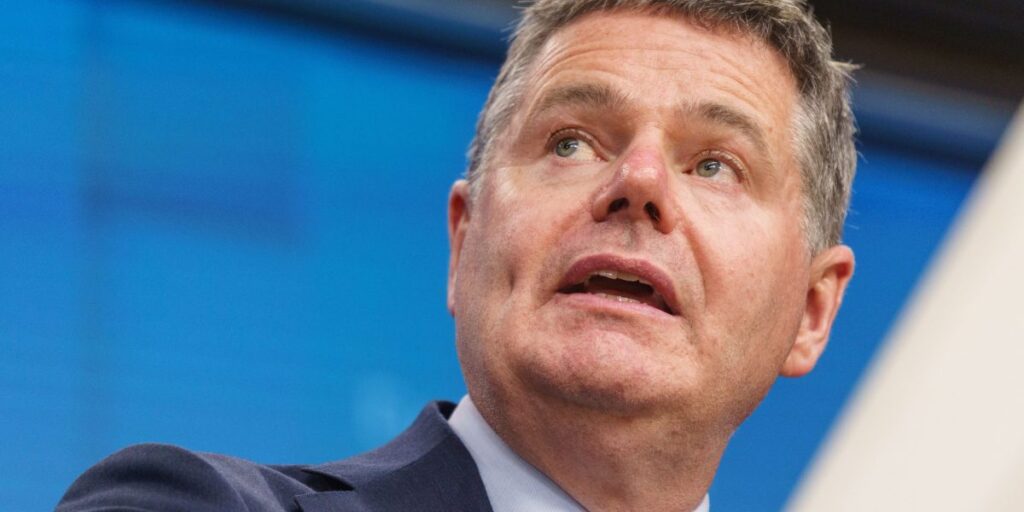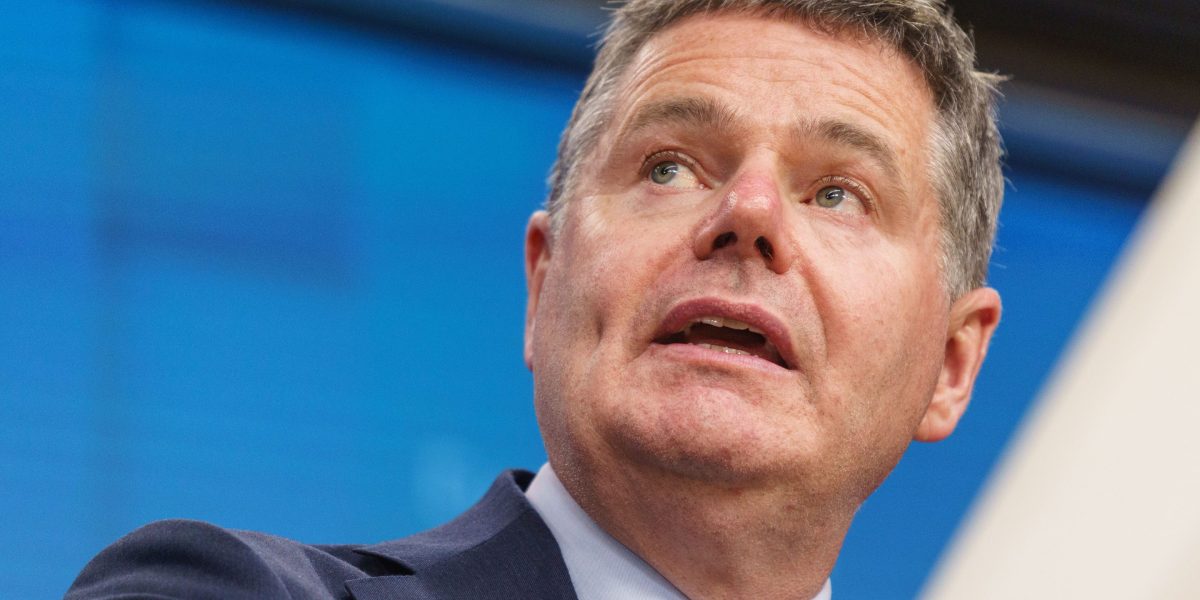A Donald Trump presidency is bad news for Europe—and the region needs to be less reliant on the U.S., top EU minister warns
“Donald Trump has outlined a very different agenda with regard to tariff levels and with regard to trade,” Eurogroup chief Paschal Donohoe said.


Eurogroup chief Paschal Donohoe said the prospect of a second Donald Trump presidency is an impetus for the European Union to prepare itself by making its economy less dependent on the US.
Speaking in an interview with Bloomberg Radio, the Irish minister for public expenditure said that while it’s up to the American people to choose their next leader, the region should be ready for any eventuality.
“Donald Trump has outlined a very different agenda with regard to tariff levels and with regard to trade,” Donohoe said. “We need to continue to deepen our own economic autonomy, to deepen the performance of our economy and the strength of our economy here in Europe, so that we’re in a stronger position to deal with the kind of changes that may come out of America.”
The remarks build on those of other EU officials such as European Central Bank President Christine Lagarde, who said earlier this year that the region should brace for “harsh decisions” in the event of Trump getting another White House stint. She has pushed for capital markets union as a way of shoring up Europe in advance of that.
“It’s a really serious issue that could develop across next year,” Donohoe said. “I’m confident we’ll be well positioned to be able to continue to develop the relationship with the US, but within a way that from a European perspective is stronger.”
Polls show the November elections to be a tight race. A July Bloomberg News/Morning Consult survey found Vice President Kamala Harris had wiped out Trump’s lead among voters in seven battleground states, with the Democrat now ahead 48% to 47% — a statistical dead heat.
Donohoe, who chairs meetings of euro-area finance chiefs, also expressed confidence in the ability of indebted countries such as France to curb deficits, even as that country copes with political upheaval.
“Of course, in order for a budget to be passed within the French Parliament, there needs to be a government in place and there needs to be the political consensus to implement that budget,” he said. “That work is under way, and I’m sure will only intensify in the aftermath of the Olympics.”
Donohoe acknowledged that investor scrutiny of public finances within the euro zone is intense and will remain so.
“We all appreciate this is something the financial markets do monitor and do respond back to in terms of the cost of borrowing,” he said. “All finance ministers do recognize that that, of itself, will create a dynamic that allows borrowing across next year in particular to come down gradually and to come down credibly.”
Donohoe also said:
- He hopes the EU’s new capital markets commissioner will outline a “strengthened action plan” on capital-markets union in the “early part of next year.”
- “I believe a majority is there within the European Parliament to make that happen. And I am very confident that when the new commission is put in place within a matter of months, we’ll see signs of ambition to make that happen.”
- Ireland’s nominee to serve as the country’s next EU commissioner — Michael McGrath — “would be a great candidate” to become capital markets commissioner or “any senior role.”








